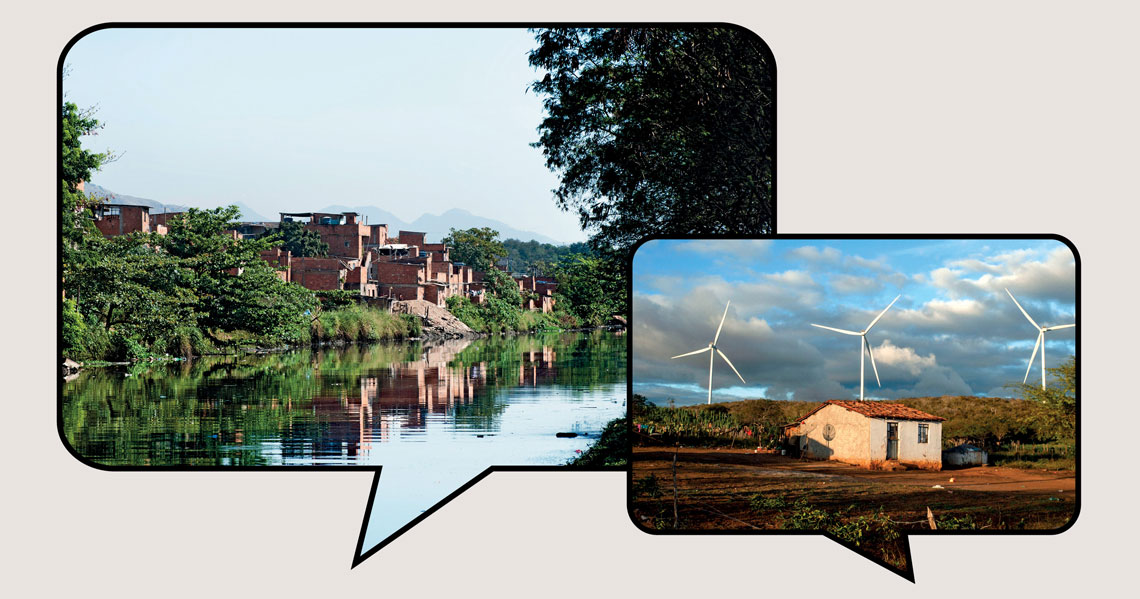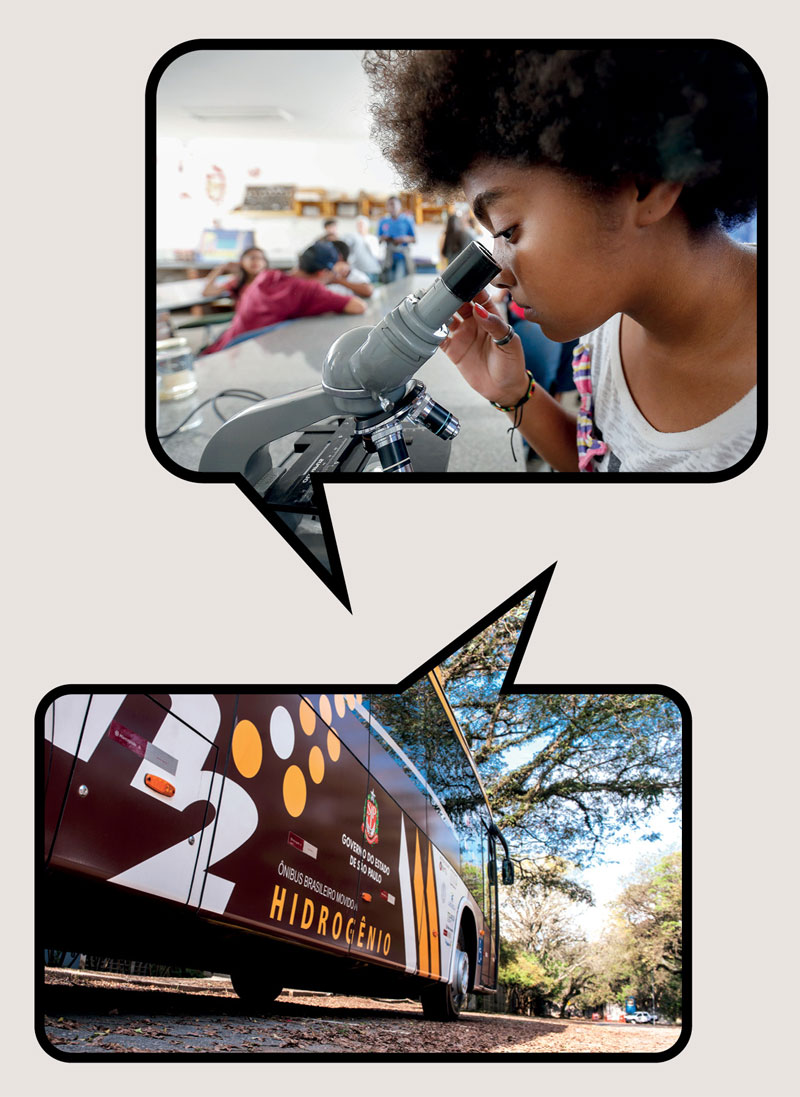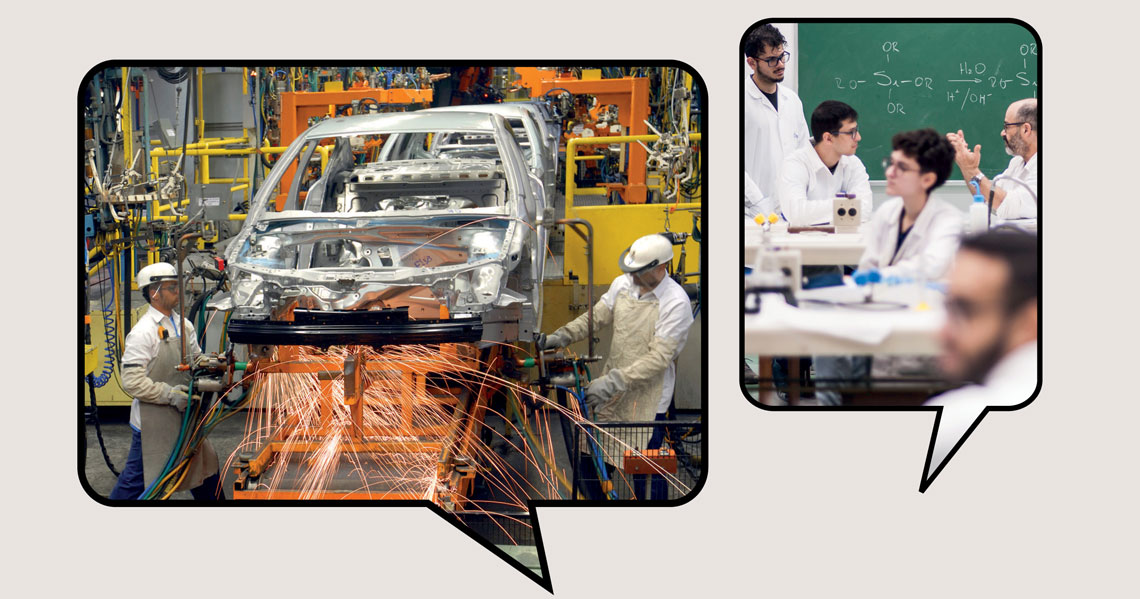Last March saw a series of events nationwide to discuss the future of science, technology, and innovation in Brazil. In 22 states and the Federal District, 64 preparatory events for the Brazilian National Conference on Science, Technology, and Innovation brought together thousands of researchers, students, officials, business leaders, and civil society representatives, attending both in person and online. These events yielded valuable insights and recommendations to inform policymaking and governmental strategies over the next decade. A draft of these recommendations will be further refined at the forthcoming conference in Brasília, scheduled for June 4 to 6 under the theme, “Science, Technology, and Innovation for a More Just, Sustainable, and Developed Brazil.”
Among the preparatory events was the São Paulo State Conference on Science, Technology, and Innovation, hosted March 7 and 8 at the auditorium of the State Department of Science, Technology, and Innovation. Key topics discussed included research funding, researcher training, the energy transition, and artificial intelligence. In Macapá, a state conference at Amapá State University (UEAP) on March 6 and 7 explored recommendations from scientists and government representatives to advance technology-based ventures and the sustainable use of Amazon biodiversity. Concurrently, on March 7, another conference at the Porto Alegre campus of Vale do Rio dos Sinos University (UNISINOS) provided an opportunity for the scientific community of Rio Grande do Sul to discuss the focal topics of the upcoming national conference, such as revitalizing the national science and technology system, countering deindustrialization, and leveraging science in strategic national and social development programs.
In addition to the 18 state conferences, nine thematic meetings held throughout March convened experts around topics selected by the organizers of the national event. For instance, the Brazilian Academy of Sciences (ABC) hosted a symposium in Rio de Janeiro on the role of basic science in knowledge creation, while the Ministry of Defense organized a conference in Brasília addressing technological challenges in the military and defense sectors. The Federal University of ABC (UFABC) explored the potential of artificial intelligence in São Bernardo do Campo (SP). Open-ended conferences were also organized independently by various groups and institutions. In Três Lagoas (MS), discussions centered on bolstering innovation in businesses outside major Brazilian cities. Conferences hosted in Manaus (AM) and Florianópolis (SC) explored avenues for integrating scientific knowledge with Indigenous wisdom and advocated for greater opportunities for women and girls in science. In Bahia, discussions focused on the gaming industry’s contribution to technological advancement in Brazil. “Even municipal governments have held preparatory meetings and will submit suggestions based on their needs to the Brasília conference,” says physicist Anderson Gomes, a researcher at the Federal University of Pernambuco (UFPE) and deputy secretary-general of the national conference. He notes that preparations for the conference began in January, including a two-month series of preparatory seminars facilitated by the Brazilian Funding Authority for Studies and Projects (FINEP).

Léo Ramos Chaves / Pesquisa Fapesp | Camilo Lobo / Diálogo ChinoPreparatory events also addressed issues like social development and the energy transitionLéo Ramos Chaves / Pesquisa Fapesp | Camilo Lobo / Diálogo Chino
The event organizers have developed a form to collate the inputs and suggestions from panel discussions and keynote speakers, all of which will be submitted to the organizers of the national conference. Capturing the essence of so many voices is no trivial task. “The sheer volume of information available is staggering. We anticipate no fewer than 170 preparatory events leading up to the national conference,” remarks Gomes. He adds that a firm will be engaged to organize the recommendations using artificial intelligence, assisting the Collation and Documentation Subcommittee and the Conference Program Committee in reviewing suggestions. In the preceding national conference in 2010, the resulting outputs were curated into a set of 300 recommendations.
The legacy from the current edition promises to extend beyond a compilation of curated suggestions. Glaucius Oliva, a physicist at the University of São Paulo (USP) and coordinator of the São Paulo State Conference on Science, Technology, and Innovation, notes that there has been uniquely extensive engagement across the entire science and technology ecosystem, including universities, public and private research institutions, and innovation-based companies. “Broad, multistakeholder discussion to chart the course of science over the next decade creates a dynamic environment that should have a positive effect on policy implementation, as all stakeholders will see themselves part of the effort,” he says. Even suggestions not selected for the national conference could prove useful. “The state conference facilitated internal discussions on our forthcoming initiatives to bolster Science, Technology, and Innovation (ST&I) in São Paulo,” notes Vahan Agopyan, State Secretary for Science, Technology, and Innovation and chair of the conference.
Léo Ramos Chaves / Pesquisa Fapesp The Amazon, and semiconductor technology are some of the themes selected for the thematic and open-ended conferencesLéo Ramos Chaves / Pesquisa Fapesp
The topics discussed at the São Paulo event were selected from the national conference program as being most relevant to the state. “In our discussion on the energy transition, for instance, our focus was on balancing emerging renewable energy sources with São Paulo’s predominant strength, namely ethanol production,” says Glaucius Oliva. São Paulo also has an emissions profile that differs from that of the rest of the country. While deforestation and agriculture are the primary sources of emissions nationally—jointly accounting for three-quarters of the total—São Paulo’s leading source is fossil fuels. “We also had a very insightful discussion on science outreach, with a particular emphasis on countering misinformation and denialism—issues that demand a deeper scientific understanding for effective mitigation, as seen during the pandemic,” he concludes.
In his opening address at the São Paulo conference, Marco Antonio Zago, chairman of the FAPESP Board of Trustees, emphasized the urgent need to strengthen regional and state ST&I systems to address the significant regional disparities prevailing today. “In São Paulo, the local government’s contribution to ST&I surpasses that of the federal government,” he pointed out. Oliva believes that São Paulo’s decades-long funding model—combining substantial and consistent state investment in higher education and research with full academic independence—could serve as a blueprint for the final document in Brasília. “Our decentralized approach, which has played a role in the state’s industrial development, could help to enhance regional science and technology systems. One avenue involves increasing state investments backed by federal funding to address local needs.”

Léo Ramos Chaves / Pesquisa Fapesp | Marcos Santos / USP ImagensConferences in several states explored topics such as women and girls in STEM fields and the development of new fuelsLéo Ramos Chaves / Pesquisa Fapesp | Marcos Santos / USP Imagens
A session on researcher training came to the conclusion that Brazil’s graduate programs need to change if they are to attract a sizable enough contingent of young talents. Marcio de Castro Silva Filho, scientific director at FAPESP, identified a list of needed changes, such as providing broader, cross-disciplinary training to enable researchers to cultivate new skills in innovation, entrepreneurship, and sustainability, and giving researchers greater exposure to societal issues and the opportunity to collaborate in solving those issues through networking. Carlos Américo Pacheco, chief executive officer of FAPESP’s Executive Board, offered a positive assessment of the conference’s two-day proceedings. “We’ve assembled compelling ideas that can contribute a great deal to improving the nation’s ST&I policies,” says Pacheco. “National science and technology conferences serve to mobilize the scientific community in constructive discussion and consultation.”
On March 19, the FAPESP auditorium hosted a thematic conference on university-industry collaboration in Brazil. Industry notables like Bernardo Gradin, founder and president of industrial biotechnology company Granbio, and André Clark, former president of Siemens Brazil and current senior vice president of Siemens Energy for Latin America, were among the guest speakers at the event. They engaged in discussions with university officials such as Antonio José de Almeida Meirelles, dean of the University of Campinas (UNICAMP), on opportunities and constraints in fostering linkages between private sector research and public research institutions. Renowned experts in science and technology policy, including Fernanda De Negri, an economist at the Institute of Applied Economic Research (IPEA), and physicist Carlos Henrique de Brito Cruz, FAPESP’s former scientific director for 15 years, also contributed insights. Some of the key challenges they highlighted included the historically limited involvement of industry in research and development efforts, notwithstanding successive legislative efforts over the past two decades to incentivize greater innovation investment. Despite the inherent cultural differences between academic and industry organizations, event participants were unanimous in their view that collaboration is slowly becoming more frequent and productive.
The preparatory phase will conclude in April with regional conferences hosted in Vila Velha (ES), Manaus (AM), Recife (PE), Curitiba (PR), and Goiânia (GO) to discuss state-specific agendas. Additionally, around 40 open-ended conferences are anticipated, covering diverse topics such as intellectual property, how science benefits agribusiness, the contribution of humanities to societal progress, the importance of science centers and museums, and the implications of brain drain. These preparatory events will lead up to the national conference in Brasília next June, which is expected to draw between 1,500 and 2,000 in-person attendees along with a large online audience for its lectures, roundtable discussions, and side sessions.
Republish